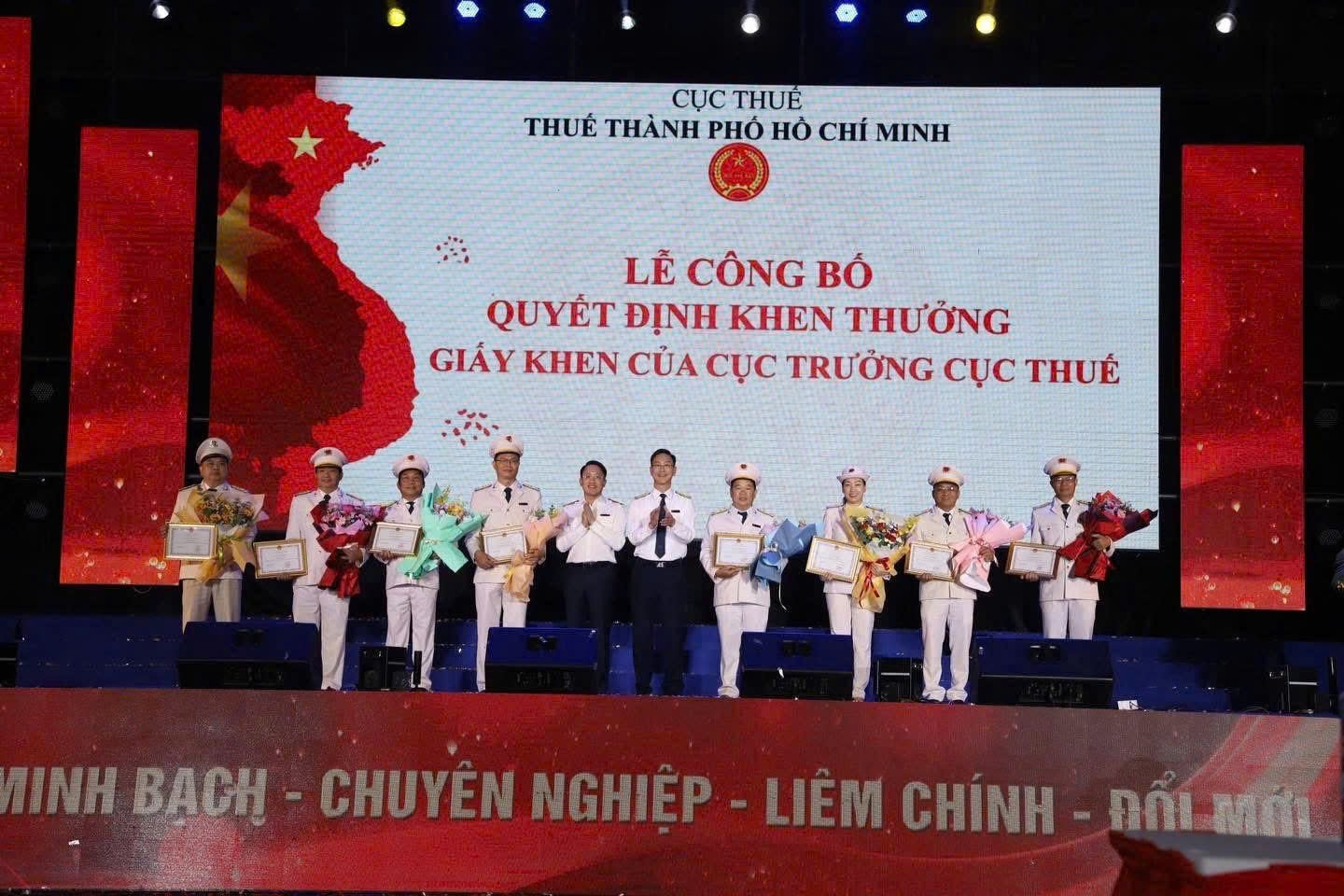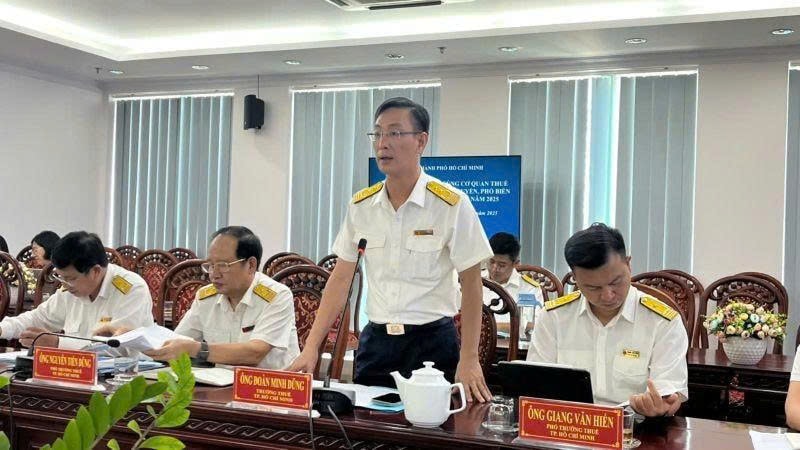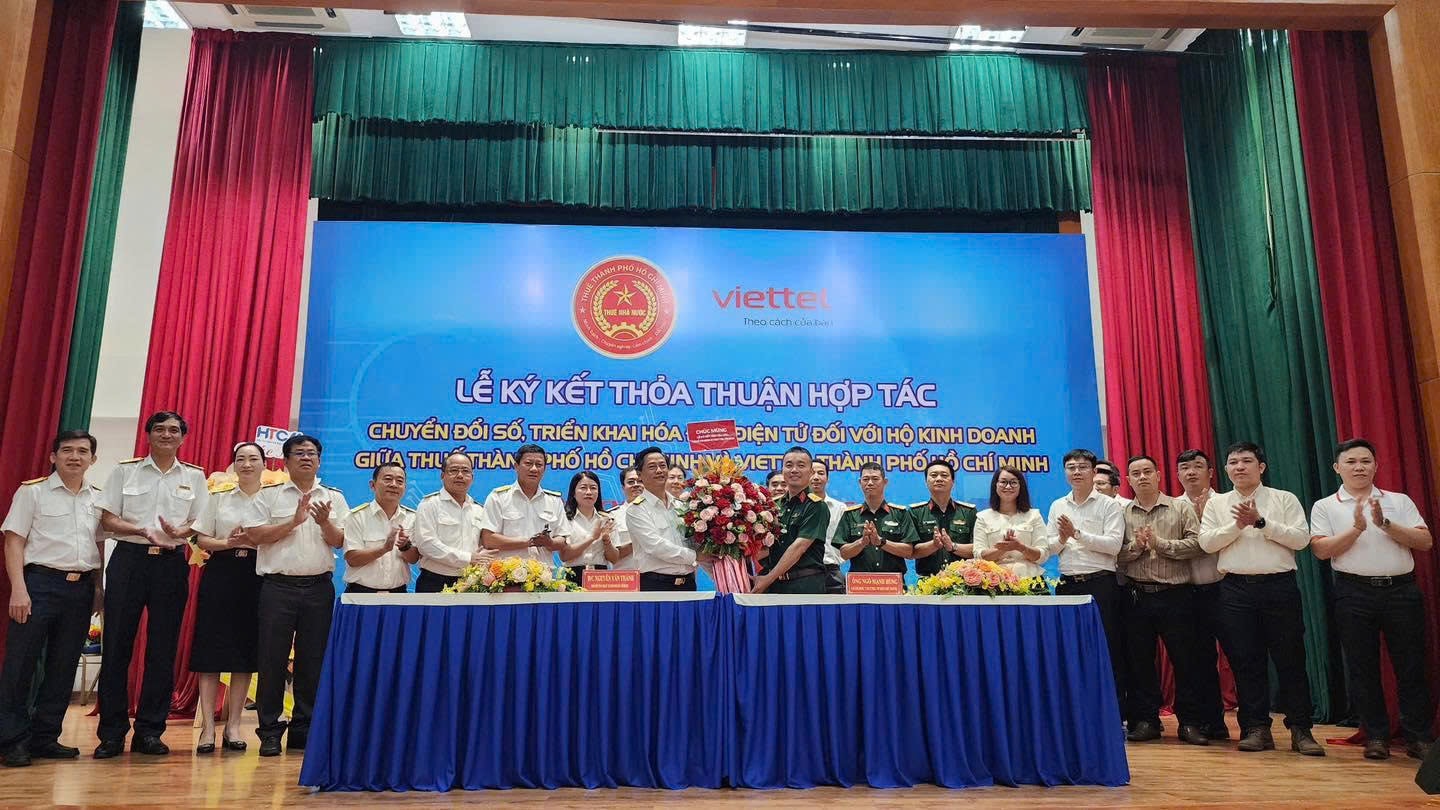HCM city Tax Department accompanies businesses
Following its merger, the Ho Chi Minh City Tax Department now operates under a new, streamlined, and efficient organizational model — one that prioritizes taxpayer services and aligns with the city’s comprehensive digital transformation strategy.

In 2025, the department was assigned a state budget revenue target of VND 501.87 trillion, accounting for 29.19% of the national total. The HCMC People’s Council later approved an additional estimate, bringing the city’s total revenue plan to over VND 524.46 trillion.
In the first nine months of 2025, budget revenue in Ho Chi Minh City exceeded VND 570 trillion, reaching 81.8% of the annual plan and up 15.6% year-on-year. Personal income tax collection surpassed VND 70.3 trillion, while revenue from housing and land exceeded VND 60 trillion — accounting for 10.5% of total budget revenue and rising 263% compared to the same period last year. Within domestic revenue, state-owned enterprises contributed over VND 32 trillion, non-state enterprises over VND 102 trillion, and foreign-invested enterprises over VND 90.3 trillion. Crude oil revenue was estimated at VND 35.1 trillion, and import–export activities brought in about VND 129.8 trillion.
The economic structure showed positive performance: agriculture, forestry, and fisheries grew 3.14%; industry and construction rebounded strongly with 7.74% growth; and services expanded 8.58% — a slight slowdown from Q2’s peak but still maintaining their role as the economic pillar.
The city’s gross regional domestic product (GRDP) in Q3 grew 8.11% year-on-year, with former HCMC areas up 8.06%, Binh Duong up 9.69%, and Ba Ria–Vung Tau up 5.86%. These figures reflect the effectiveness of the city’s management solutions and its determination to operate as a mega-city contributing a quarter of the national economy.
Strengthening cooperation with the media and supporting taxpayers
On August 22, 2025, the HCMC Tax Department held a seminar titled “Media Cooperation with the Tax Authority in Communicating New Tax Policies for 2025.”
According to Mr. Doan Minh Dung, Director of the Ho Chi Minh City Tax Department, the Vietnamese economy in recent years has strived to overcome numerous global challenges — trade disruptions, inflationary pressures, supply chain breakdowns, and intense international competition — while regional growth has shown signs of slowing.
In this context, the National Assembly and the Government have issued various major policies to stabilize the macroeconomy, support businesses, foster innovation, and ensure social welfare. These include continued implementation of tax exemptions, reductions, and deferrals of tax, fees, and land rent to support citizens and enterprises, sustain revenue sources, and stimulate growth.
Mr. Dung emphasized that the main challenge for the tax authority is to balance support policies with maintaining stable financial resources for development investment. The department is working toward the goal of 8% GDP growth in 2025, with ambitions to achieve double-digit growth in the following years.

To meet these goals, the tax sector has translated major directives into practical measures — notably simplifying administrative procedures, expanding e-invoicing and e-tax services, and making it easier for taxpayers to comply. At the same time, the department continues implementing tax relief and land rent deferral policies to support production recovery, while stepping up anti-tax-evasion efforts to ensure fairness and transparency.
Since July 1, 2025, HCMC Tax Department has been operating under its new organizational model, following its merger with the Binh Duong and Ba Ria–Vung Tau provincial tax offices. The new structure emphasizes lean and effective management, combining function-based and taxpayer-based administration, centered on serving taxpayers and embedded within the national digital transformation strategy, guided by the motto: “Taxpayers at the heart of service.”
Mr. Dung highly appreciated the media’s collaboration in communicating tax policies to the business community and the public, which has enhanced compliance and supported the tax sector’s ongoing reform. Public awareness of tax obligations has improved significantly; more businesses and individuals now recognize that fulfilling tax duties is not only a legal responsibility but also a meaningful contribution to public welfare, healthcare, education, and social security.
Digital transformation to boost efficiency and combat revenue losses
According to Mr. Dung, while HCMC’s 2025 tax collection results are commendable, the city’s revenue growth still does not fully match its economic potential as the country’s economic hub.
To successfully manage tax administration and achieve the 2025 revenue target assigned by the Government and the Ministry of Finance, the department will focus on six key areas:
- Stabilizing the organizational structure, ensuring smooth operations and continuous taxpayer services.
- Strengthening coordination with the Party Committee, People’s Committee, and relevant agencies.
- Enhancing inter-agency cooperation across all levels of local government to fully accomplish assigned fiscal and administrative duties.
The department has also signed a digital transformation cooperation agreement with Viettel HCMC to implement e-invoices for all business households — marking a significant milestone in extending e-invoicing across the city. This stands as clear evidence of the sector’s determination to modernize tax administration.
Meeting the Prime Minister’s directive of a 20% revenue increase remains a formidable challenge. Therefore, the department is urgently reviewing and assigning revenue collection targets to each division and local office under the new structure for prompt execution.
In addition to strict compliance with directives from higher authorities, HCMC Tax Department will closely monitor economic conditions, analyze revenue trends, and assess the impacts of new support policies introduced in the last quarter of 2025.
The department also continues to intensify inspections in high-risk sectors, including post-refund audits, e-commerce, livestream sales, real estate, and luxury goods, while proposing more effective and scalable anti-fraud measures.
On the digital front, HCMC Tax Department aims to be even more proactive — developing advanced management software, leveraging Big Data and artificial intelligence (AI) for risk analysis, monitoring, and decision-making, and improving overall operational efficiency.
“With the unity and dedication of all officials and staff,” Mr. Dung affirmed, “I am confident that the Ho Chi Minh City Tax Department will continue to overcome challenges, fully achieve its assigned political tasks, and contribute positively to the development of the tax sector — and of the nation as a whole.”








